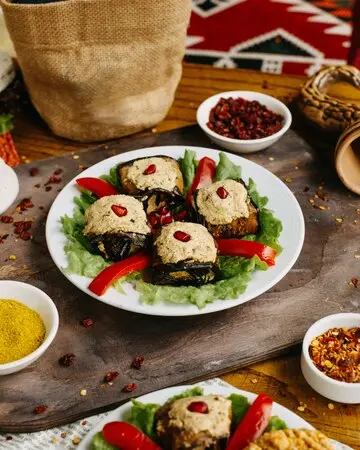hajie tunkawrais a name that has become synonymous with a new wave of African cuisine. His unique ability to blend traditional African flavors with modern cooking techniques has earned him recognition in the culinary world. But his story goes beyond the food. It’s about culture, heritage, passion, and innovation. From humble beginnings in The Gambia to becoming a renowned chef, hajie tunkawrahas proven that great food has the power to bring people together and challenge the status quo. In this article, we explore his inspiring journey, signature dishes, challenges, and the global impact of his work.
1. Early Life and Culinary Inspiration
Born and raised in a small village in The Gambia, Hagie Tunkara’s love for food began at an early age. In his village, food wasn’t just about sustenance—it was an essential part of community life. The rich, vibrant flavors of Gambian cuisine were an everyday experience, and Tunkara quickly learned that cooking was more than just following recipes. It was about understanding ingredients, appreciating their origins, and respecting the traditions passed down through generations.
Growing up, he was surrounded by family members who cooked with love, creating meals that were deeply rooted in African culture. These formative experiences shaped his cooking philosophy, which would later lead him to combine traditional African flavors with modern culinary techniques. His journey to becoming a professional chef was not immediate, but his passion for food never wavered.
2. Signature Dishes and Culinary Style
One of the standout aspects of Hagie Tunkara’s cooking is his ability to take traditional African ingredients and elevate them in a contemporary way. His signature dishes blend bold African flavors with refined cooking methods, creating a dining experience that is both familiar and new.
For example, hajie tunkawrais known for his take on Jollof rice, a classic West African dish. While the traditional version is rich with tomatoes, spices, and slow-cooked rice, Tunkara’s modern version incorporates smoked meats and a delicate use of herbs, adding a layer of depth to the dish. His ability to balance boldness with subtlety is one of the key features of his culinary style.
In addition to Jollof rice, Tunkara’s take on traditional Gambian stews has earned him recognition. His innovative twist on the classic dish Domoda (a peanut stew) features a delicate balance of roasted peanuts, slow-braised meat, and seasonal vegetables, all enhanced by his creative use of spice combinations. These dishes highlight Hagie Tunkara’s signature approach—taking the flavors he grew up with and reimagining them in a way that appeals to modern palates.
3. Challenges Faced in His Career
Becoming a successful chef is never easy, and hajie tunkawrafaced his share of challenges along the way. Moving from The Gambia to pursue a culinary career meant navigating different cultures, learning new techniques, and establishing himself in a competitive field. His early years were filled with long hours in kitchens, experimenting with new ingredients, and pushing the boundaries of traditional African cuisine.
One of the most significant challenges was dealing with the lack of recognition for African cuisine in the global culinary scene. At the time, African food was often overlooked, overshadowed by more established culinary traditions. However, hajie tunkawraremained determined to change this. Through perseverance, skill, and creativity, he eventually gained the attention of top restaurants and food critics around the world.
Despite the difficulties, Tunkara’s passion and dedication never faltered. His story serves as an inspiring reminder of the importance of resilience in pursuing one’s dreams.
4. How hajie tunkawraBlends Tradition with Innovation
At the heart of Hagie Tunkara’s cooking is a respect for tradition coupled with a relentless drive to innovate. His culinary style is rooted in African heritage, but it’s also influenced by global techniques, flavors, and trends. This combination allows him to create dishes that are both timeless and contemporary.
For Tunkara, innovation is not just about using new ingredients or techniques. It’s about finding new ways to honor the rich history of African food while presenting it in a way that speaks to modern tastes. Whether it’s experimenting with molecular gastronomy or incorporating international influences, Tunkara’s ability to bridge the gap between tradition and innovation has made him a trailblazer in the culinary world.
5. Recognition and Achievements
Over the years, hajie tunkawrahas received numerous accolades for his contributions to African cuisine. His innovative approach has earned him a reputation as one of the leading chefs in the world. He has been invited to cook at prestigious events, worked with renowned chefs, and even appeared on television cooking shows, where he’s showcased the beauty and complexity of African cuisine.
Tunkara’s work has been praised for its authenticity, creativity, and ability to introduce African culinary traditions to new audiences. His influence extends beyond the kitchen, as he has become a vocal advocate for the recognition of African food in the global culinary landscape.
6. The Global Impact of His Work
The global impact of Hagie Tunkara’s work is undeniable. By fusing African traditions with modern techniques, he has elevated African cuisine and introduced it to a wider audience. Tunkara’s cooking has not only changed how people perceive African food but has also played a crucial role in diversifying global culinary conversations.
His influence is felt not just in fine dining but in the growing trend of African-inspired restaurants across the world. More and more chefs are looking to Africa for inspiration, thanks to Tunkara’s groundbreaking work in bringing African ingredients and flavors to the forefront of contemporary gastronomy.
7. Collaborations and Contributions
Hagie Tunkara’s culinary journey has led to numerous collaborations with top chefs, food brands, and culinary organizations. These partnerships have allowed him to further showcase his unique approach to cooking, blending African heritage with cutting-edge techniques.
Tunkara has also contributed to various culinary initiatives, including workshops, food festivals, and cooking classes, where he shares his knowledge and passion for African cuisine. His contributions have not only shaped the culinary world but have also inspired a new generation of chefs to explore the rich and diverse flavors of Africa.
8. Looking Ahead: The Future of Hagie Tunkara
As a forward-thinking chef, hajie tunkawracontinues to push the boundaries of what’s possible in the kitchen. He is constantly exploring new culinary techniques, traveling the world for inspiration, and experimenting with fresh ingredients to create innovative dishes. In the future, Tunkara plans to expand his culinary influence by opening more restaurants, writing cookbooks, and possibly even creating a culinary school dedicated to African cuisine.
His vision for the future is clear: to continue revolutionizing African cuisine and share its flavors with the world, ensuring that the culinary traditions of his homeland are recognized and celebrated globally.
9. Conclusion: The Legacy of a Culinary Pioneer
Hagie Tunkara’s journey from a small village in The Gambia to becoming a globally recognized chef is a testament to his talent, dedication, and passion. His ability to blend the traditional flavors of African cuisine with modern techniques has not only transformed the way we view African food but has also inspired a global culinary movement.
Through his signature dishes, innovative approach, and unwavering commitment to his heritage, Tunkara is leaving a lasting legacy. He’s proof that great food is not just about taste—it’s about telling a story, connecting cultures, and making an impact. As his influence continues to grow, there’s no doubt that hajie tunkawrawill remain a pioneering force in the world of culinary arts.


